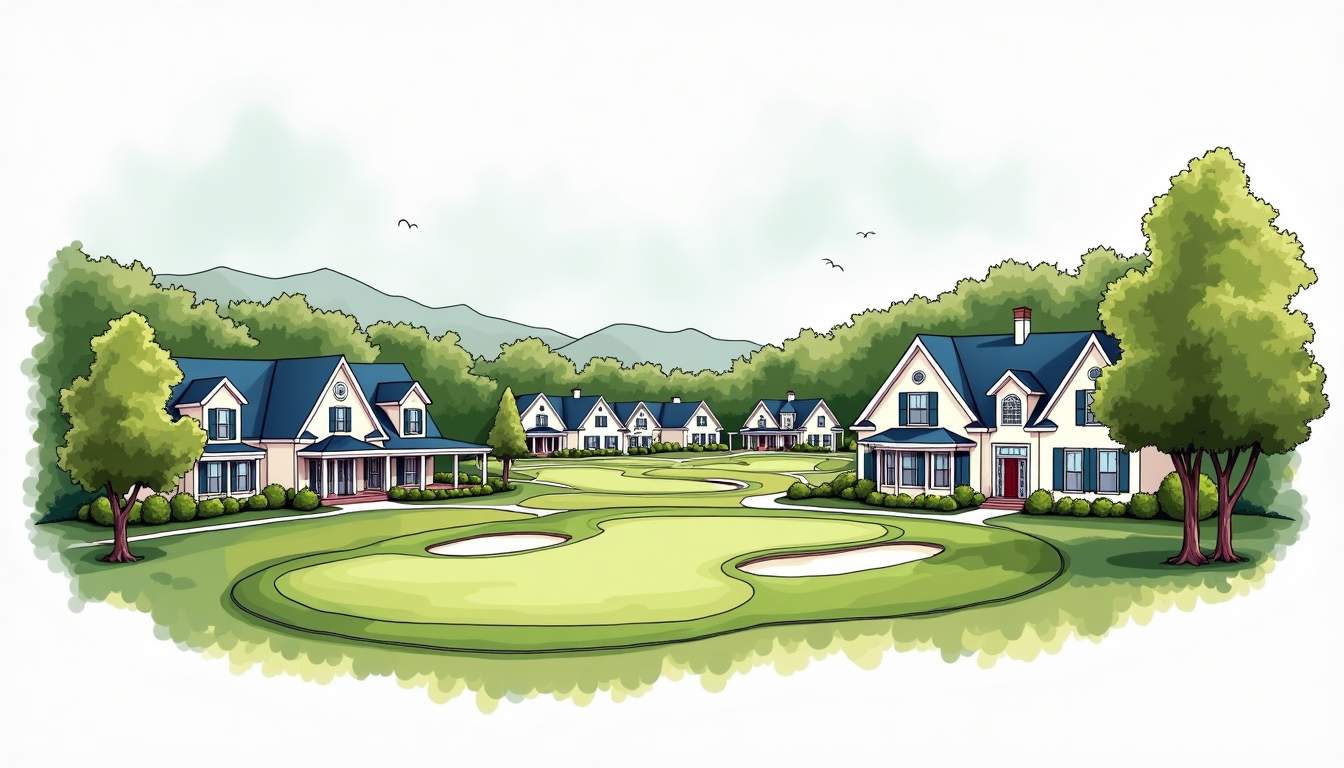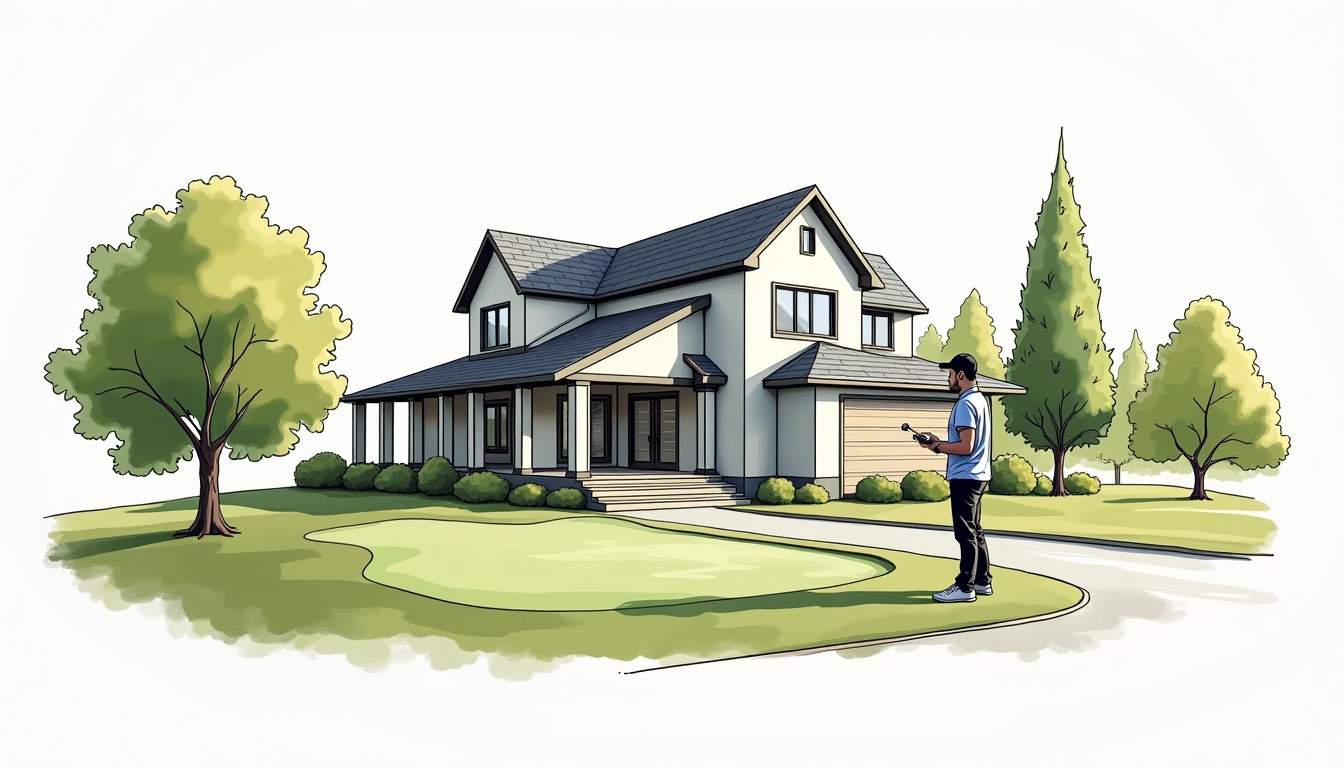
Club-focused communities have become a major draw for homebuyers seeking lifestyle amenities, social opportunities, and thoughtful neighborhood design. Loudon County, with its mix of rolling countryside, suburban conveniences, and proximity to metropolitan centers, offers a range of club-centric developments that cater to golfers, equestrians, social clubs, and amenities-oriented families. This guide explains what to look for when shopping for a club-focused home in Loudon County, what questions to ask, and how to match the right community to a desired lifestyle.
Club-focused communities place a significant emphasis on shared amenities and organized activities. In Loudon County, this can mean private country clubs with golf courses, gated subdivisions built around equestrian facilities, or newer developments with pools, fitness centers, and active homeowners associations that run events year-round.
These communities typically offer varying levels of exclusivity and membership models. Some clubs include membership as part of the property purchase, while others require a separate initiation fee and ongoing dues. Understanding these differences upfront is critical to assessing both monthly costs and long-term value.
Moreover, social opportunities play a crucial role in club-focused communities. Many of these neighborhoods feature robust calendars with events like holiday parties, wine tastings, fitness classes, and youth programs designed to foster connections among residents. This social fabric often becomes a key draw for families and individuals seeking a strong sense of community beyond just the recreational amenities.
Another important consideration is the management style and financial health of the club or homeowners association. Transparent governance and well-maintained facilities contribute greatly to resident satisfaction, while mismanagement can lead to increased fees or reduced services. Prospective buyers should review meeting minutes, financial statements, and speak with current residents to get a full understanding of how the community operates.
Common amenities include golf courses and driving ranges, tennis and pickleball courts, swimming pools, clubhouses with dining options, fitness centers, and walking trails. Equestrian-focused developments may offer barns, arenas, bridle paths, and turnout fields. Smaller or newer communities might prioritize community gardens, playgrounds, and multi-purpose rooms for events.
In addition to these, many club-focused communities in Loudon County emphasize outdoor living spaces such as picnic areas, outdoor fire pits, and nature preserves. These features encourage residents to spend time outdoors and can enhance the overall aesthetic and environmental quality of the neighborhood. Some communities also integrate technology-enabled amenities, like app-based reservation systems for courts or clubs, providing convenience alongside traditional leisure facilities.
Three common membership models are equity (membership tied to property ownership), non-equity (a separate contract with the club), and social-only memberships that exclude certain privileges like golf. Equity memberships can add resale value but may also require approval processes for transfers. Non-equity models offer flexibility but create ongoing financial obligations independent of property taxes.
It’s also worth noting that some clubs offer tiered memberships to accommodate different lifestyle preferences and budgets. For example, “family” memberships might include access for spouses and children, while “individual” packages cater to single residents. Additionally, seasonal memberships are sometimes available, providing access only during certain months—ideal for part-time residents or those seeking reduced fees. Understanding these nuances can help buyers select a membership option that aligns with their usage patterns and financial goals.
Club-focused neighborhoods can deliver convenience, a built-in social scene, and well-maintained shared spaces. That structure appeals to buyers seeking active lifestyles, families wanting safe and engaging environments, and retirees who value community engagement without needing to organize activities themselves.
Additionally, properties in these communities often benefit from careful landscaping and uniform architectural standards, which can protect property values. For some buyers, the draw is less about the amenities and more about the lifestyle: an easy weekend routine of tennis and dining or a landscape of rolling fairways outside the back window.
Regularly scheduled events, classes, and tournaments foster relationships among residents. Clubs often host holiday celebrations, charity events, and interest-based groups that make it easier to meet neighbors and form deeper community ties. For people moving from out of town, this social infrastructure accelerates integration into the local social fabric.
HOAs and clubs routinely handle common maintenance tasks such as landscaping, road upkeep, and amenity maintenance. This predictability appeals to buyers who prefer lower hands-on maintenance or who plan to travel frequently. Expect to pay for these conveniences through dues, but benefit from a consistent standard of care that reduces unexpected repair responsibilities.
Loudon County presents a diverse set of club-centric options, from traditional country clubs to newer lifestyle-oriented subdivisions. Neighborhoods differ in setting—some nestle close to town centers, others spread across pastoral acres where horses and outdoor life dominate.

Country club neighborhoods generally revolve around an 18-hole golf course, with residences ranging from modest single-family homes to large estate properties. These communities often feature formal dining rooms, pro shops, and active golf leagues for all skill levels. Homes adjacent to fairways can command premiums, so location within the club is a key pricing factor.
For equestrian enthusiasts, Loudon County offers neighborhoods with private barns, rentable paddocks, and trail networks. Properties here tend to be larger, providing space for private arenas and outbuildings. Zoning rules and HOA restrictions regarding livestock, fencing, and stable construction vary, making due diligence especially important for buyers with specific animal care needs.
Developments aimed at families often emphasize pools, playgrounds, walking trails, and community programs. These areas may be closer to schools, shopping, and commuter routes, blending convenience with organized recreational opportunities. Such neighborhoods tend to be attractive to growing families who value both activity options and practical access to services.
A tour of a club-focused property should include both the house and the community amenities. Visual inspections should assess the condition of shared facilities as well as private property elements, because the state of community infrastructure influences lifestyle and dues over time.

Inspect clubhouses, pool areas, tennis courts, and fitness centers for signs of upkeep or deferred maintenance. Ask about renovation schedules, recent upgrades, and how often areas are closed for repairs. A well-maintained facility typically indicates stable HOA management and reserves.
Look at the yard, fencing, driveways, and any outbuildings. In equestrian communities, evaluate stall conditions, pasture fencing, and drainage. For homes adjacent to golf courses, check for erosion, tree health, and how close the home sits to fairways—golf balls and maintenance noise can affect livability.
Visit at different times of the day to gauge traffic patterns and noise levels from clubs (events, tournaments, or early-morning groundskeeping). Proximity to major roads, airports, or event spaces can influence daily life and resale appeal.
Understanding the financial obligations tied to club-focused properties is essential. Monthly or annual dues fund common areas, staff, and maintenance. In many cases, the cost of living in these communities extends beyond the mortgage and property taxes.
Request recent HOA financial statements, reserve studies, and meeting minutes. A healthy reserve reduces the risk of special assessments. Meeting minutes can reveal recurring issues, disputes, or upcoming projects that might affect expenses or usage of facilities.
Some clubs charge initiation fees, transfer fees on property resale, or capital contributions when new owners join. Ask for a complete list of potential charges, including penalties for late payments and rates for guest passes. Also confirm whether certain amenities are covered automatically or if additional fees apply for specific activities.
When financing a club-focused home, lenders will consider HOA dues and any mandatory club fees as part of the debt-to-income calculation. Buyers should work with mortgage professionals familiar with properties in Loudon County to avoid surprises at underwriting.
Resale value often depends on the perceived quality of the club and ongoing management. Well-run clubs with active memberships can be a selling point, but restrictive rules, high dues, or declining membership may reduce desirability. Properties with flexible membership options or community-run amenities sometimes attract a broader pool of buyers.
Review covenants, conditions, and restrictions (CC&Rs) carefully. Restrictions may govern exterior paint colors, additions, rental policies, and animal ownership. Understanding these rules helps avoid future friction and ensures planned use of the property aligns with community regulations.
Match personal priorities to community offerings. A long list of amenities may seem attractive, but not every household will use them equally. Balancing lifestyle fit with financial practicality will lead to a better long-term experience.
Consider which amenities will genuinely be part of weekly life. A rarely used golf course with high dues is less practical than an affordable neighborhood with pools and walking trails used daily. Prioritize based on actual habits rather than aspirational plans.
Ask about the types of events hosted, participation levels, and the typical demographic mix. Some clubs emphasize competitive sports, while others focus on social programming or family activities. Matching the community culture to expectations prevents mismatches after moving in.
Follow a systematic approach to ensure the chosen club-focused home meets both emotional and practical needs. Preparation reduces the chance of unpleasant surprises during ownership.

Work with real estate agents experienced in club properties, inspectors familiar with equestrian facilities if relevant, and lenders who routinely finance homes with significant HOA dues. Specialists expedite transactions and provide insight into community-specific issues.
Itemize necessary repairs and use HOA records to negotiate price or request seller concessions. If the community has upcoming capital projects, negotiate responsibility for initiation or dues adjustments accordingly.
Where possible, spend time in the community before committing—attend an event, rent nearby, or seek temporary access to amenities. That firsthand exposure clarifies whether the social rhythm and lifestyle align with expectations.
Club-focused homes in Loudon County can deliver a rich lifestyle, combining recreational access, social opportunities, and well-maintained surroundings. Careful evaluation of amenities, financial obligations, and community culture makes the difference between a property that energizes daily life and one that disappoints. Thoughtful research, specialized professional support, and realistic expectations will guide a confident purchase decision in this unique market.
Choosing the right club-focused community is less about chasing every available amenity and more about aligning daily habits and long-term plans with what a neighborhood actually provides. When the match is right, the result is a home that offers both convenience and a sustained sense of belonging.
If you’re ready to find a community that perfectly blends luxury, lifestyle, and exceptional amenities, Tennessee National offers an unmatched experience in Loudon County. From our Greg Norman Signature Golf Course to private marina and vibrant social clubs, every detail is designed to complement the club-focused living described in this guide. Whether you prefer a move-in ready home or a custom build, explore the possibilities of resort-style living set against Tennessee’s scenic beauty. Schedule a private tour today and start making memories daily at Tennessee National.